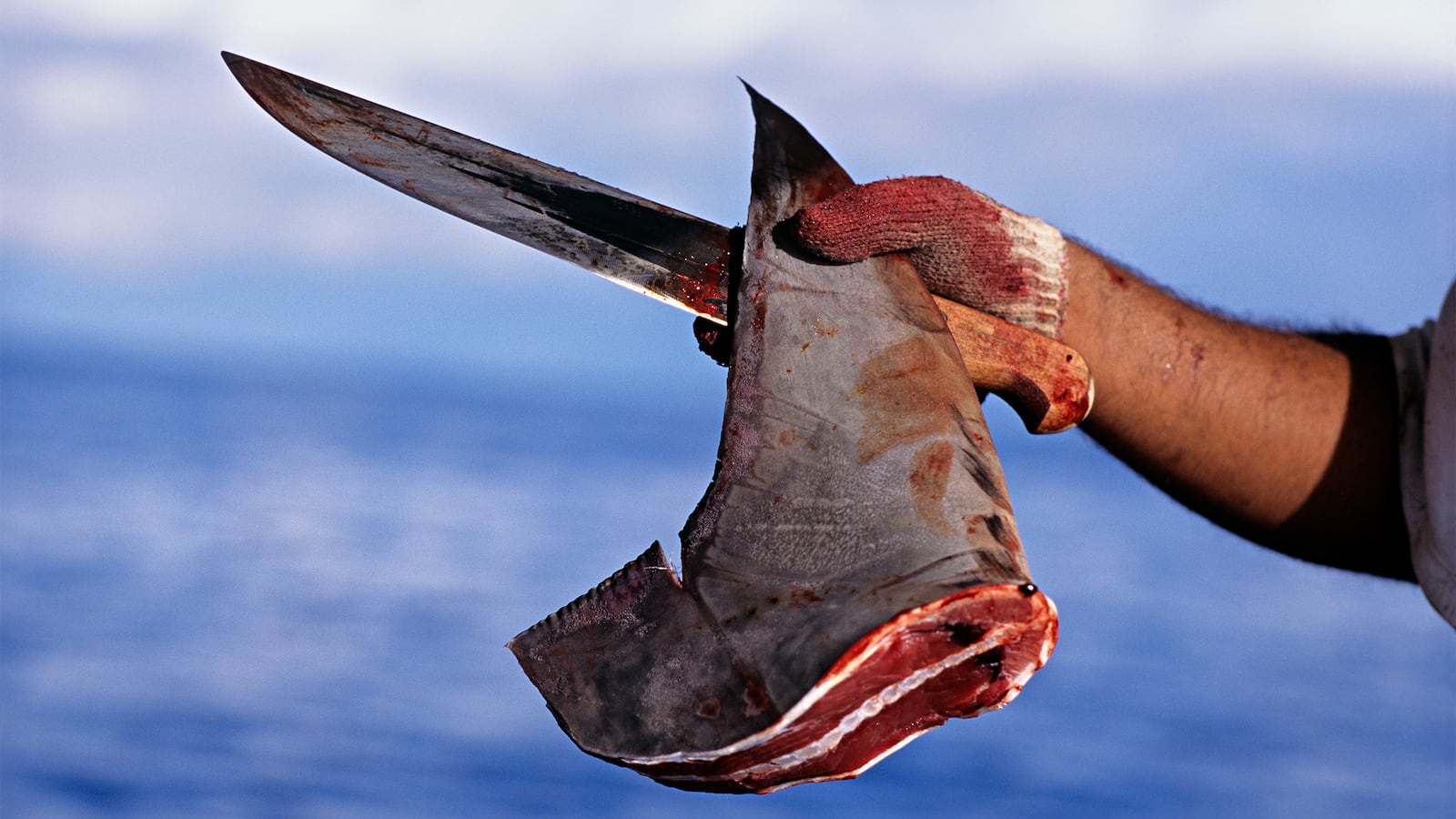Sharks are incredible beasts. Tremendously sophisticated and sensitive, they have evolved over the course of 450 million years to near perfection for their purpose here on Earth. They are the architects and stewards of the oceanic ecosystem, keeping the food chain intact and maintaining the balance of the seas, which in turn makes life on this rock possible. Many people think of sharks as mindless black-eyed monsters, but that couldn’t be further from the truth. They are a keystone species. Without the balancing skill set of sharks, we and all other species are at great risk.
To an oceanic conservationist, it’s shocking that shark-finning continues in our modern world. Finning is the barbaric practice of slicing off the fins of a shark, often discarding the rest of the carcass overboard to suffer a slow and drawn-out death. This gruesome issue was illuminated in Rob Stewart’s eye-opening 2006 documentary Sharkwater. The film was tremendously successful in raising awareness and inspiring change. Many governments implemented policy to make shark-finning illegal, and millions of square miles of ocean have been protected as shark sanctuaries.
But the fact remains: we are killing more sharks now than ever.
Shark-finning is a Swiss cheese dilemma, full of loopholes, workarounds, and ways to hide in plain sight. One of the most blatant of these is trans-shipping. While there are guidelines and regulations in many countries regarding landing sharks with their fins attached, regulations around importation and exportation of shark fin are quite lax. So, while a fishing vessel coming into various ports around the world may face scrutiny, a shipping vessel laden with fins would not.
Trans-shipping is the process of transferring catch from a fishing vessel to a cargo ship on the high seas, far away from the eyes of enforcement agencies or watchdogs. This has a twofold effect on dwindling shark populations. Firstly, it allows fishing vessels to spend longer at sea, so their hold can be filled repeatedly with sharks or fins if the fishing is good and they can rendezvous to offload catch. Secondly, trans-shipping creates a “shark-fin superhighway” from the largest of these refrigerated cargo vessels to various markets around the world. This means that it is often unnecessary to land catch at a nearby port, and getting a truly accurate estimate of how many sharks are being killed per year is difficult at best.
Some estimates of shark mortality have soared up to 150 million per year. This is a drastic increase from the yearly estimate of 80-90 million during the time of Sharkwater. Approximately 80 million of these sharks can be accounted for in the shark fin soup industry—a billion-dollar business that is largely credited with endangering the oceans’ most apex predator. But this potentially leaves another 70 million sharks unaccounted for. Where are they going?
We decided to dive back in to find out what was going on beneath the surface. What we uncovered is the subject of Rob Stewart’s new film Sharkwater Extinction. Unfortunately, we have witnessed new and emerging markets for other shark products, in mandating that sharks be landed with their fins attached. Shark is now being detected in fertilizer and fishmeal, pet food and cosmetics, and often shark is being mislabeled and fed to humans for consumption!
This is a tremendously risky proposition, not only for the ecosystem and the health of the oceans, but for the health of human beings as well. Being such a long-lived apex predator, sharks are stuffed with toxins, pollutants, PCBs and mercury. Recent studies show that it is unsafe for women and children to consume shark. In a nutshell, there is increasing demand for a highly endangered species. No species can withstand the kind of pressure we are putting on sharks.
And so it is time to recognize that not only do we have a shark-finning problem—we have a shark-fishing problem. With our track record we are aware that knowledge is power, and once people have information, they make better decisions. We believe in humanity, and that people want to make better decisions. We believe that people want to be heroes, and guardians for our planet and way of life. Anyone can be a hero. In order to safeguard our oceans, we must give sharks a break. We must stop fishing them. We need much stronger regulations on the import and export of shark fin. We need to be informed consumers and insist that shark be labeled correctly, and be excluded from our products and purchases. You can learn more about this here.
Tragically, we lost our hero, Rob Stewart, while making this film. But his message and his inspiration live on. If there is any solace in the heartbreak of losing Rob too soon and too young, it is in the acknowledgement that he gave everything he had, and made the ultimate sacrifice to fight for what he loved, and to protect what is beautiful.
He has inspired all of us, and will continue to do so.
Brock Cahill is a Cinematic Activist and Preservation Tactician at TeamSharkwater, a long time friend and dive buddy of Rob Stewart, and the founder of The SeaChange Agency.
Sharkwater Extinction opens in theaters across Canada on Oct. 19. US and international dates will be announced soon. Arm yourself with the information to be a hero for sharks, and for all.






